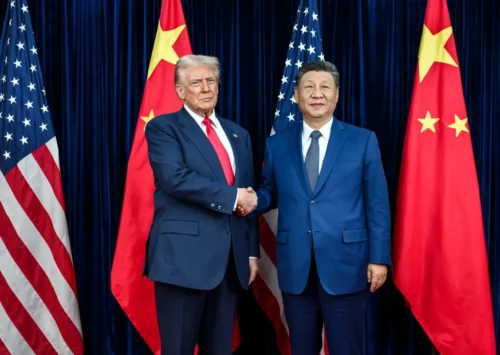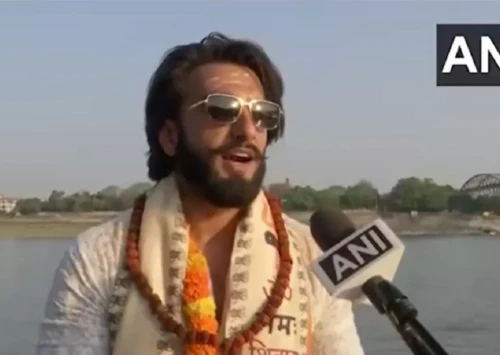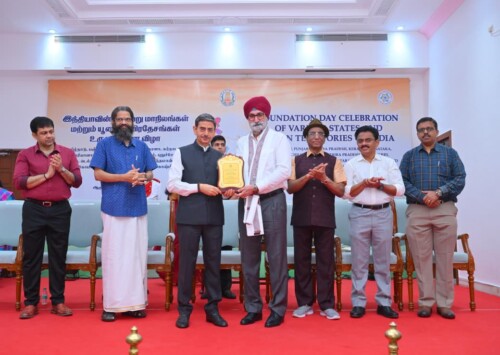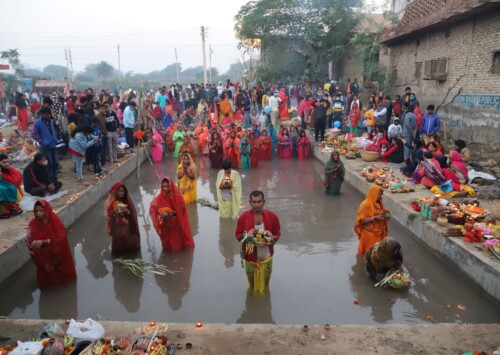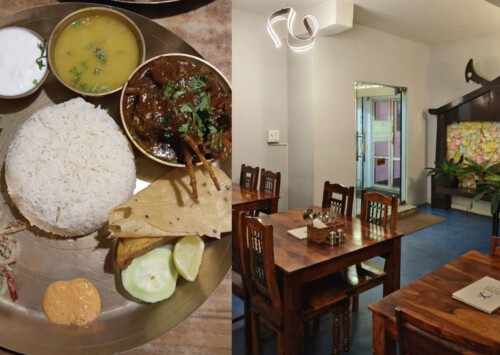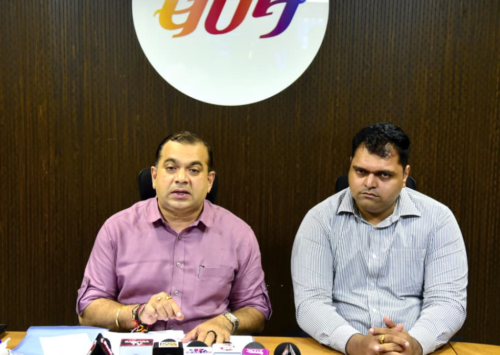In rare display of unity, Kashmir shuts down in protest against Pahalgam massacre
Questions over potential lapses in security & intelligence gathering

Kashmir has declared not just a shutdown but a moment of collective reckoning (Photo: Firdous Parray)
Tuesday’s terror attack in Pahalgam has left Kashmir in shock and mourning. With heavy security already in place, locals and politicians are questioning how such a well-coordinated assault could unfold, highlighting concerns over lapses in security and intelligence.

Kashmir has declared not just a shutdown but a moment of collective reckoning (Photo: Firdous Parray)
Less than 24-hours after the worst terror attack in Kashmir in over six years, Pahalgam, that was echoing with laughter and the chatter of tourists, is now eerily silent. The terror attack that claimed 28 lives has transformed not just Pahalgam, but the entire Kashmir valley into a landscape of grief. Shuttered shops, deserted hotels, and tearful farewells mark the aftermath. As mourning blankets Kashmir, locals and politicians grapple with fear, sorrow, and the haunting question: how could such brutality unfold in a place so heavily secured?
On Wednesday, from Lal Chowk of Srinagar to the narrow lanes of Anantnag, shutters remained down, traffic is absent, and a heavy, communal grief hangs in the April air. Kashmir has declared not just a shutdown, but a moment of collective reckoning. The vibrant hum of tourists that had become a common sound all over Kashmir for past few years, has been replaced by silence, sorrow and shuttered markets.
“Pahalgam is completely shut right now. Every person here has tears in his eyes. We Kashmiris are already sensitive, and what happened, it is not just violence, it is the killing of humanity. Innocent people were shot at for no reason. The children here are crying. The whole atmosphere is heavy with grief. Even the markets are closed, there is just silence and sorrow. The tourists who were here yesterday have all left. Pahalgam, which was full of laughter just a day ago, is now drowning in mourning,” Bashir Ahmad Veeri, MLA, Bijbehara, National Conference tells Media India Group.
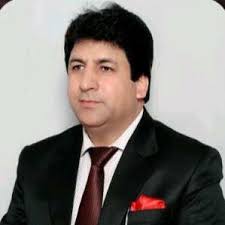
Bashir Ahmad Veeri
Even amid Kashmir’s unrest, direct attacks on tourists have been rare. In 1995, six foreign tourists were abducted in Pahalgam by the armed group Al-Faran. One was killed, another escaped, and the remaining four were never found.
In 2000, 32 people, including 21 Hindu pilgrims, were killed at Nunwan in Pahalgam. A year later, 13 people, including 11 pilgrims and two locals, were killed near Sheshnag Lake in the same area.
In 2017, eight pilgrims were killed in a shooting incident in the Anantnag district. In June last year, eight Hindu pilgrims were killed in the southern part of Jammu’s Kathua when their bus was attacked and fell into a gorge after the driver lost control. But Tuesday’s attack is the deadliest attack on tourists at least since the 2000 attack in Nunwan.
Also Read: Terror attack in Pahalgam threatens Kashmir’s tourism revival
In an unusual show of solidarity, students, teachers, local residents and political parties, across ideological divides, have joined together in peaceful protests and public mourning, refusing to let this tragedy be reduced to a news cycle flashpoint.
On Wednesday morning, hundreds of students at Kashmir University gathered silently in the central lawn, holding placards that read: “Violence has no religion stop killing the innocents”, “Islam has no relation with terrorism” and “We condemn the cowardly attack on tourists”.
“It is not just about the numbers. It is about the humanity we lost yesterday. Those people came here in peace. They came as our guests. And someone decided to turn their journey into their last. That kind of violence, no matter who commits it, no matter where, it has no religion, no faith, and no justification. This is not Islam. This is not Kashmir. And we do not support this. Not now, not ever. That pain, that shame, it belongs to all of us now,” Yaseen Shafi, a student from Kashmir University tells Media India Group.
Throughout the day, the Valley saw similar moments of reflection. Locals in Baramulla, Srinagar, Poonch and Kupwara held candlelight marches while Bajrang Dal workers in Jammu held a protest against the terror attack.
A bandh that speaks louder than slogans
Unlike past shutdowns often driven by separatist calls or enforced by fear, Wednesday’s bandh was spontaneous, voluntary, widespread and profoundly symbolic. Even roadside vendors, usually the last to close, had rolled down their carts in mourning.
This shared mourning has also inspired rare unity among political factions that are otherwise often at odds. The People’s Democratic Party (PDP) and the National Conference (NC) along with several smaller independent leaders, all condemned the attack in nearly identical terms, such as “barbaric,” “inhuman,” and “against every value of our land.” For once, Kashmir’s political voices, often divided by ideology stood together to say that no cause can justify the murder of innocent civilians.
Also Read: Fear in Jammu & Kashmir over surge in terror attacks
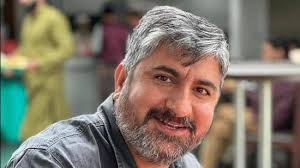
Mohit Ban
“Kashmir has always been the political nerve centre of India. Anything good or bad that happens here immediately echoes across the entire country. After this horrific attack, I know that some people will once again try to feed off political opportunism, they will paint Kashmir in a dark light, and unfairly vilify Kashmiris. But this is not a time to exploit tragedy. This is not about politics. This is not about Hindu or Muslim. This is an attack on the very soul of Jammu and Kashmir, on its people, its peace, its promise,” Mohit Ban, Spokesperson, People’s Democratic Party, tells Media India Group.
Bhan emphasises that this is not just a tragedy of numbers. It is not just about numbers who were killed it is about the 10 million Kashmiris who now find themselves mourning, afraid and once again made to carry the weight of violence they did not commit.
“I am honestly short of words to describe the pain. Twenty-eight families are devastated, and there are no words that can soothe that grief. But I also want people to understand that it is not just them. Over 10 million people of Jammu and Kashmir are under attack economically, politically, and socially. The fear, the disruption, the heartbreak it is shared by every Kashmiri. We are all living with this trauma, this uncertainty. What happens to these families is a direct blow to all of us. We are all under siege, our lives upended, our hopes for peace and normalcy shattered. This is not just an attack on tourists, it is an attack on Kashmir itself,” Bhan adds.
He says that this should be a moment of unity for all of us. The entire country must stand togethr right now. “Political parties, regardless of their ideologies, must rise above their differences and show true solidarity with the people of Jammu and Kashmir. This is not about gaining votes or scoring political points, it is about standing against barbarism and showing compassion for humanity. And, to be fair, we are witnessing this solidarity firsthand,’’ he adds.
Former Chief Minister Mehbooba Mufti, who joined a student-led peace march in Anantnag, told reporters that Kashmiris are not silent today. “We are speaking through peace, through presence, through prayer. This was not an attack on tourists. This was an attack on what we have been trying to rebuild,” Mufti said.
Not just the politicians, even the ordinary people of Kashmir are speaking out, united in their grief and disbelief. While the past violence has left deep scars, locals are adamant in their stance, this is not the Kashmir they know. For generations, Kashmiri Muslims have lived by the principles of peace, hospitality, and community, and they refuse to let this attack, or any form of violence, define them.
Also Read: Disappointed by SC ruling on Article 370, Kashmiris remain sceptical of Delhi’s motives
“We don’t support this violence, and we never will. What happened yesterday was a tragedy, not just for the victims, but for all of us. The ones who were martyred whether they were tourists or locals are our own people. From Kashmir to Kanyakumari, we are one nation, and we stand united in this grief. This is not a division of communities, it is an attack on humanity itself. And this is not our Islam. Islam does not teach us to kill, to hurt innocent people. Our faith is about peace, mercy, and compassion. What happened here is the complete opposite of what our religion stands for. We are Kashmiri Muslims, and we reject these acts of violence. Our hearts are with the victims and their families, and we will not let this hateful act define us,” Danish Manzoor, a local from Baramulla tells Media India Group.

Danish Manzoor
Fears of security lapses & intelligence failure
While the mourning for the victims is on, many are also raising questions about the potential security lapses and failures in intelligence gathering that led to the massacre. They also say that the tragedy has shattered the mirage of normalcy and security as propagated by the Union Government.
The promise of “normalcy” after the abrogation of Article 370 has been a recurring narrative from authorities, but many locals and politicians see it differently. For them, the events of the past days have only confirmed their fears that the situation is far from stable.
“They keep saying that after the abrogation, the situation was normal, but is this what they call normal? Yesterday’s attack proved that things are far from normal. If everything were fine, then why were not we allowed to offer namaz at Jama Masjid? Why couldn’t people go to Eidgah for prayers? Just the day before yesterday, the Waqf Act was passed, and immediately after that, all the imams across Kashmir whether in villages or towns received a call from the police station telling them not to speak about it on Friday. If things were truly normal, why would this happen,” says Veeri of NC.
He emphasised that the so-called ‘normalcy’ being portrayed is nothing more than a forced narrative.
“What happened with the abrogation of Article 370, It didn’t change anything for us. It was simply part of the BJP’s political agenda to gain electoral dividends. For Kashmiris, 370 was more than just a law it was a psychological shield, and its removal has left us with a sense of defeat and vulnerability,” he adds.
Veeri says that the promised end to militancy following the abrogation of Article 370 has not materialised. They point to the ongoing violence, not just in Kashmir but also in previously peaceful areas, as evidence that the situation remains far from normal.
“If the abrogation had anything to do with ending militancy or terrorism, then why did the violence continue? We saw terrorist attacks not only in Kashmir but in places like Rajouri, Poonch, and Doda, areas where violence had not occurred even during the 90s. These were largely Hindu-dominated areas, and yet they were attacked. This shows that the policies of the BJP have shattered the confidence of the people. Their wrong decisions, their hatred, it has all affected us. The biggest impact of all is psychological; people here feel defeated and vulnerable,” Veeri adds.
Also Read: Five years after Article 370 abrogation, rising disaffection & fear in Kashmir
Politicians are also voicing their concerns about the glaring gaps in the region’s security infrastructure after the attack. They are demanding accountability, questioning how such a well-coordinated and brutal assault could unfold without any prior warning, highlighting critical failures in both human intelligence and security measures.
“To have such an attack take place and not have the security forces there at that time is deeply troubling. The attackers took a route from Kishtwar to Pahalgam and carried out this gruesome killing. Clearly, this was a meticulously planned attack, and there was a major lapse in the security establishment. There is a failure in human intelligence as well. Somebody needs to answer for how such a large-scale attack was planned and executed, with no information or warning reaching our security grid,” says Bhan of PDP.
Many are questioning how such a brutal act could occur despite the heavy security presence in the region. The locals and politicians alike are struggling to reconcile the presence of multiple security agencies with the failure to prevent the attack.
“There are many things to say, but the biggest question is this, if Pahalgam had such a strong security presence, how did this attack happen? The security grid was already strengthened, with multiple agencies and components on the ground. Yet, despite all these preparations, the attack still took place. This raises doubts in people’s minds. If everything was in place, why was there no protection when it was needed most? People here have their own opinions, and frankly, I have not heard any satisfactory explanation yet,” says Veeri.
Also Read: Pulwama terror attack
Not only politicians but locals too are raising tough questions in the aftermath of the terror attack. With the region under tight security surveillance, many are struggling to understand how such a large-scale and coordinated strike could occur without intervention.
“Thousands of tourists were in Pahalgam, how is it possible that security was not in place? Was it all planned? We don’t know. But whatever it was, it was not just wrong, it was terrifying. Not just for the people who died, but for all of us living here. This is not good for anyone, not for the people, and certainly not for Kashmir,” Zubair Ahmad, a tour operator from Anantnag, tells Media India Group.

